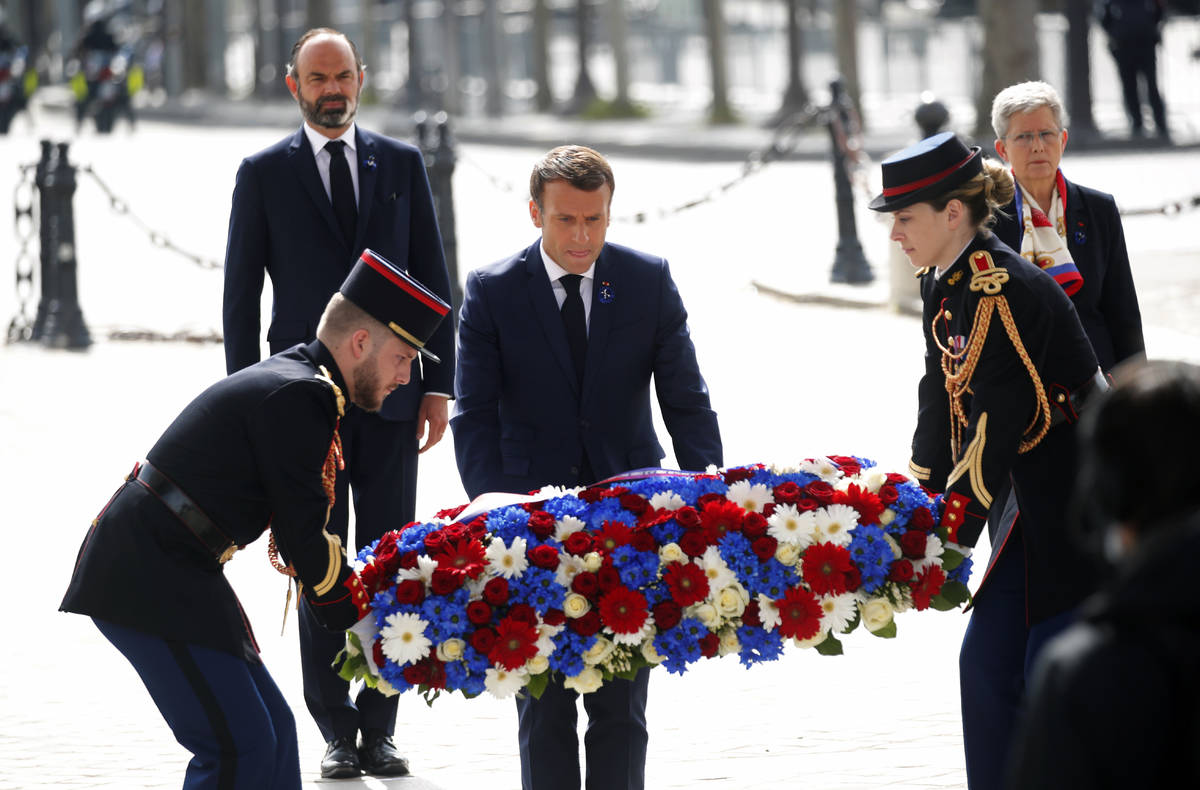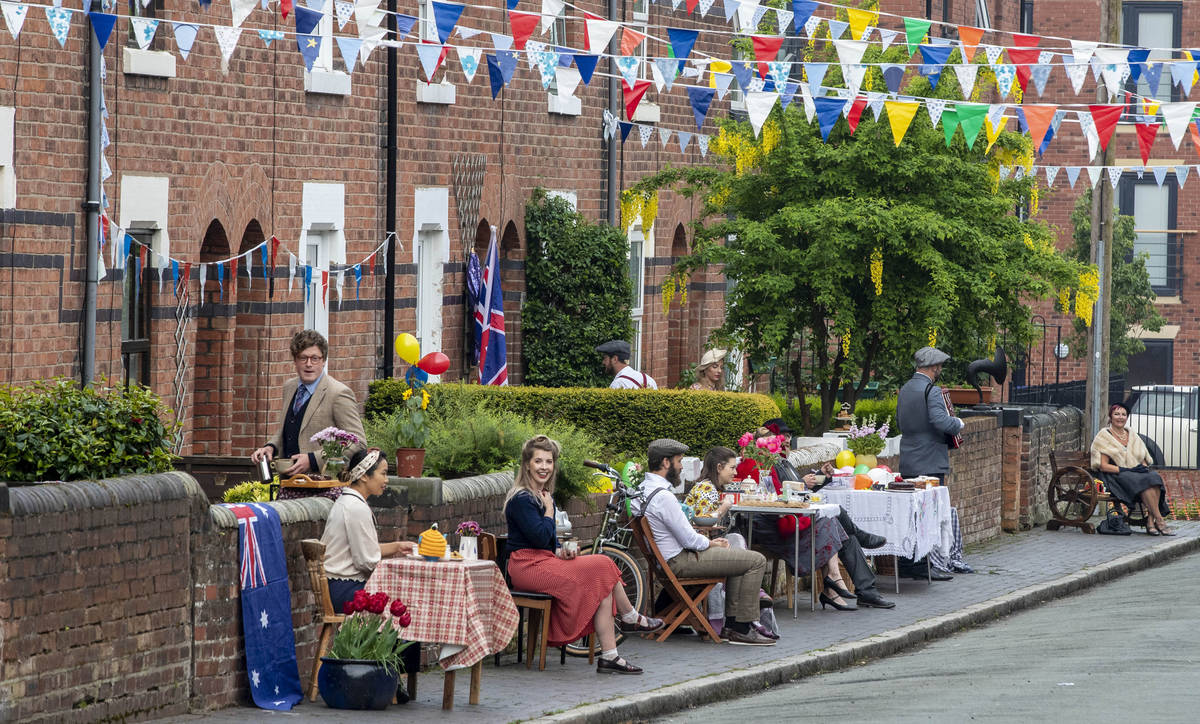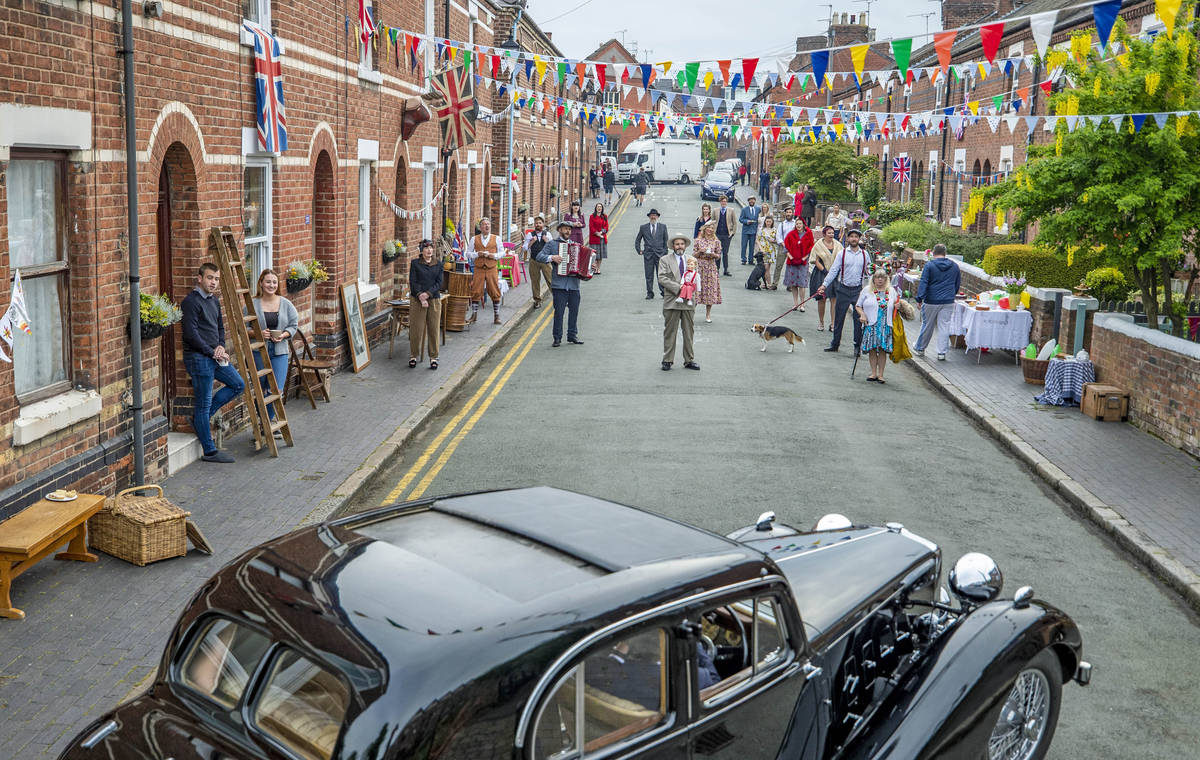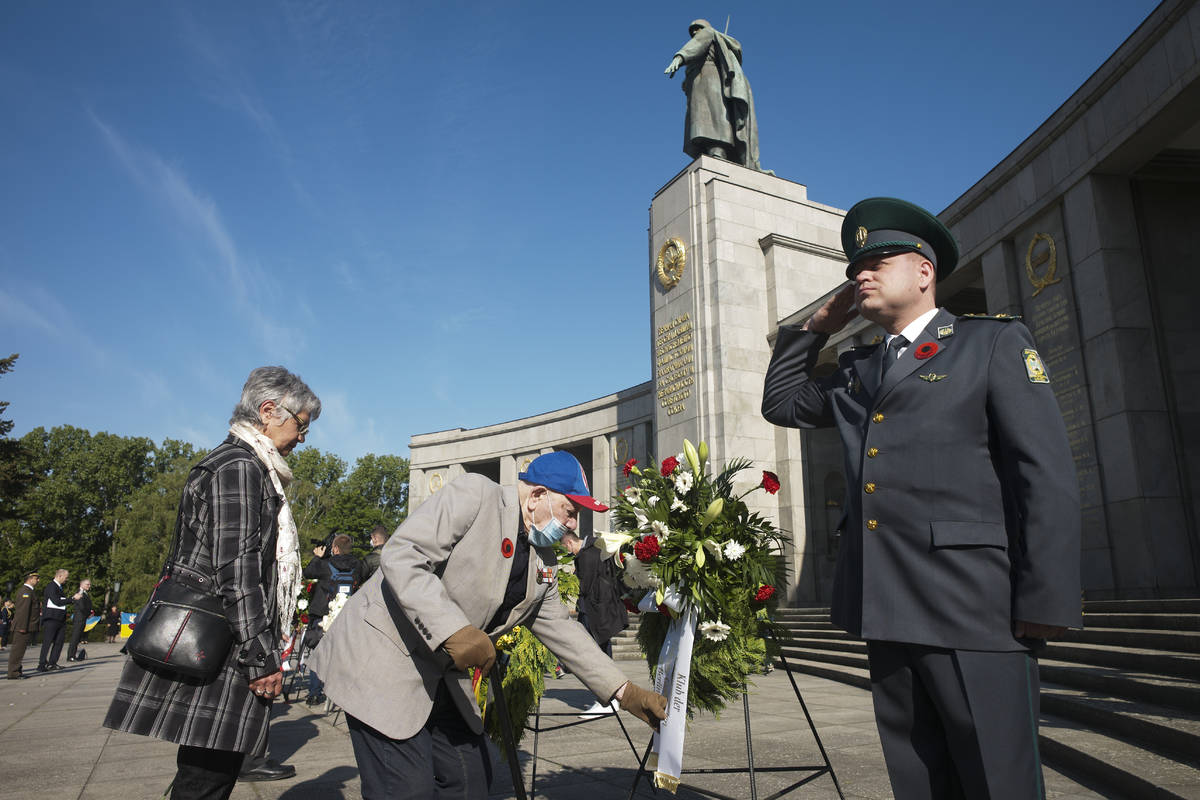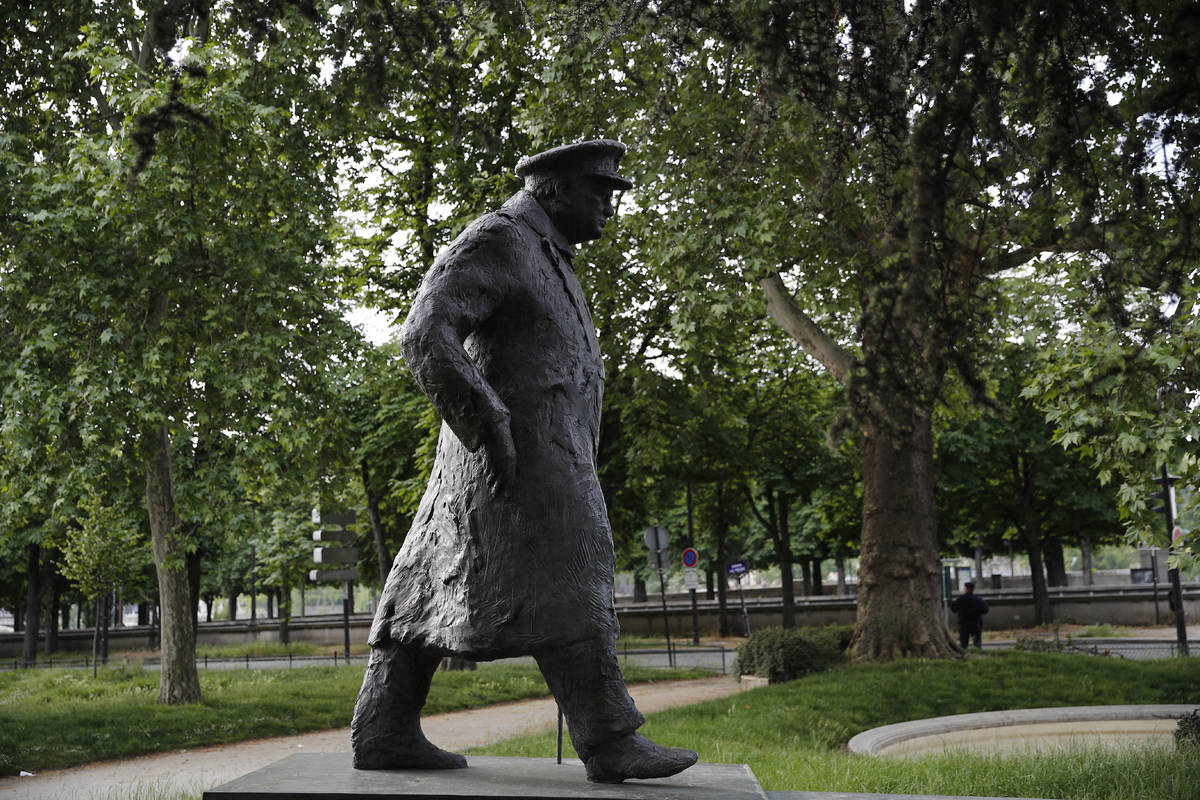Virus forces low-key VE Day commemorations in Europe
LONDON — Europe was marking the 75th anniversary of the surrender of Nazi Germany to Allied forces following six years of war in a low-key fashion Friday due to coronavirus lockdown restrictions across the continent.
The big celebrations that had been planned have been either cancelled or scaled back dramatically and people across Europe have been asked to mark the moment in private.
There will be no mass gatherings, no hugging or kissing, but that day of liberation is being remembered from Belfast to Berlin. For the few World War II veterans still left, many living in nursing homes under virus lockdowns, it’s a particularly difficult time.
Britain
Up and down the U.K., people have been getting into the spirit of VE Day, which for this year alone has been designated as a public holiday.
Many are dressing up in 1940s attire, while bunting has been displayed outside homes, including at 10 Downing Street in London that houses the prime minister’s office. People are also being encouraged to go out onto their doorsteps to sing Dame Vera Lynn’s iconic wartime anthem, “We’ll Meet Again” — which has added resonance now as families and friends are separated by coronavirus lockdowns.
People gathered in a socially distanced way on the hills of south London to marvel at the Royal Air Force’s Red Arrows. The nine planes flew in formation above the River Thames and let loose their red, white and blue smoke to mark the colors of the Union flag.
Prime Minister Boris Johnson, who lit a candle Thursday evening by the grave of the Unknown Warrior in Westminster Abbey in remembrance of those who gave their lives, wrote to the country’s veterans, describing them as “the greatest generation of Britons who ever lived.”
Prince Charles and his wife, the Duchess of Cornwall, led the country in a two-minute silence at the war memorial on the grounds of Balmoral Castle in Scotland. Charles laid a wreath of poppies on behalf of the nation. At the U.K.’s main memorial on Whitehall in central London, traffic ground to a halt as people observed the silence.
The tributes will continue through the day. The victory speech of Britain’s wartime prime minister, Winston Churchill, will be broadcast on BBC Television.
Queen Elizabeth II will speak to the nation at 9 p.m., the exact time that her father, King George VI, addressed Britons 75 years ago.
France
French President Emmanuel Macron led a small ceremony at the Arc de Triomphe monument to mark the anniversary. He lay a wreath and relit the flame of the Tomb of the Unknown Soldier, atop a deserted Champs-Elysees, Paris’ grandest avenue.
Macron was accompanied by former presidents Francois Hollande and Nicolas Sarkozy, each carefully observing social distancing. Macron cleaned his hands with hand gel after signing the official register.
Four singers of the French Army Chorus sang the national anthem, “La Marseillaise.”
Macron also laid a wreath at the statue of one of his predecessors, Charles de Gaulle, the general revered for leading the French Resistance from London after France had fallen in 1940. France was liberated in 1944.
Germany
German Chancellor Angela Merkel and other top officials laid wreaths at the memorial to victims of war and violence in Berlin, standing in silence as a trumpet played. The low-key ceremony on an empty Unter den Linden boulevard replaced a bigger event that President Frank-Walter Steinmeier had once planned to lead outside the Reichstag parliament building.
“The corona pandemic is forcing us to commemorate alone — apart from those who are important to us and to whom we are grateful,” Steinmeier said. He recalled that, on May 8, 1945, “the Germans were really alone,” militarily defeated, economically devastated and “morally ruined.”
“We had made an enemy of the whole world,” he said in a nationally televised address. Seventy-five years later, he said, “we are not alone.”
Steinmeier underlined Germans’ responsibility to “think, feel and act as Europeans” in this time of crisis and to confront far-right attacks wherever they emerge.
“If we don’t keep Europe together, in and after this pandemic, we will prove not to be worthy of May 8,” he said.
Germans have come to see the Nazis’ defeat as a liberation.
“We Germans can say today that the day of liberation is a day of gratitude,” Steinmeier said. “Today, we must liberate ourselves — from the temptation of a new nationalism; from fascination with the authoritarian; from distrust, isolation and enmity between nations; from hatred and agitation, from xenophobia and contempt for democracy.”
Merkel spoke with Russian President Vladimir Putin by phone Friday to mark the anniversary, and the two agreed the war is a reminder of the need for “close cooperation between states and people to preserve and encourage peace and understanding.”
Poland
In Poland, VE Day elicits mixed emotions as the defeat of Nazi Germany did not lead to the immediate freedoms that other European nations enjoyed. After the war, Poland was subjugated by the Soviet Union, and remained part of the communist bloc until 1989.
At a wreath-laying commemoration at the Tomb of the Unknown Soldier in Warsaw, President Andrzej Duda described VE Day as a “bittersweet anniversary” for a country that endured one of the most brutal Nazi occupations. Six million of Poland’s 35 million people were killed, half of whom were Jewish.
Duda lamented the fact that thousands of Polish troops who had fought alongside Allied forces during the war were later “betrayed” by the Allies and were not allowed to march in the 1946 Victory Parade in London for fear of straining British relations with Soviet leader Joseph Stalin.
World War II began on Sept. 1, 1939, when Adolf Hitler’s Nazi forces invaded Poland.



